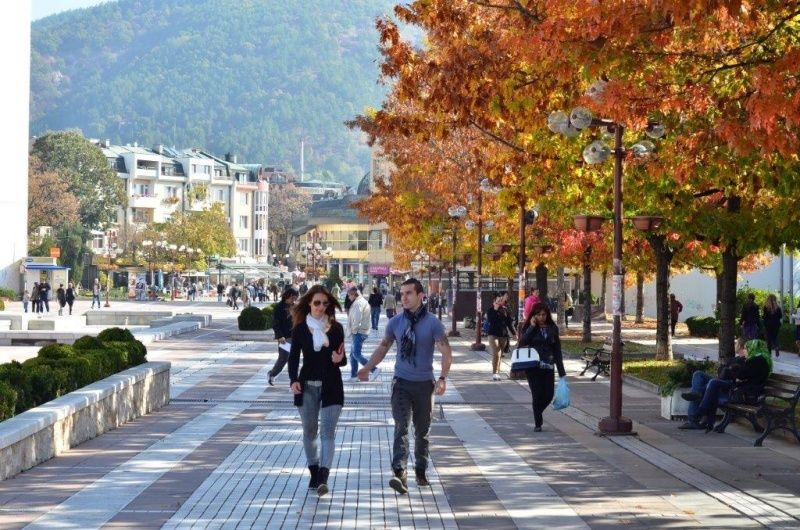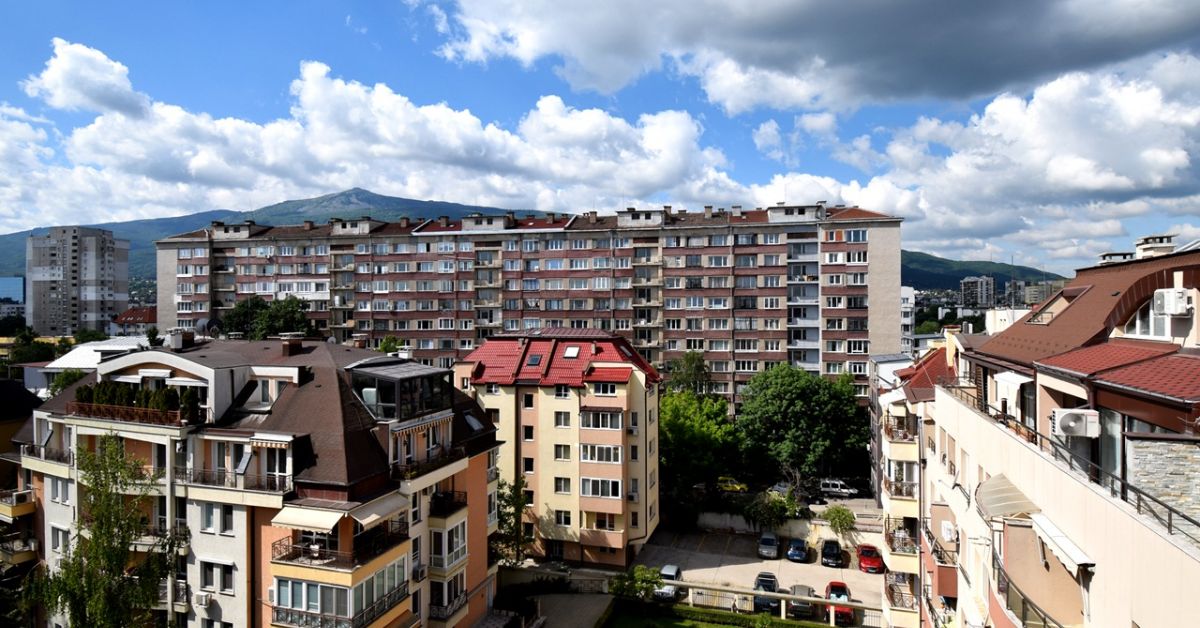Municipalities want higher taxes since early 2024.
An update can be done every two to four years
They need to develop several options
The National Association of Municipalities of the Republic of Bulgaria (NSORB) insists that the construction tax should be increased due to the significant increase in property prices in recent years. The idea is to make a change to Appendix No. 2 of the law on taxes and local taxes – “Rules for the tax assessment of real estate” so that the tax assessments of houses are closer to market prices. Consequently, if the building tax rates are maintained in each municipality, the tax income in the local treasury will increase.
Various options should be made to change the tax valuation of the properties, Silvia Georgieva, executive director of the NSORB, told Trud. One possible option is for property tax assessments to be increased by the inflation accumulated in recent years, calculated by the National Statistical Institute, she explained. Another option is to increase tax assessments as property prices rise. An assessment of the effect of this change must be made in order to select a particular option.
Until 2007, the assessments were updated every two years. According to Silvia Georgieva, it is now good to update every two or four years. But for this to happen, a change in the law on local taxes and fees is required.
The current tax assessments have not changed for over 10 years and do not correspond to the prices of market properties. The idea of the municipalities is to increase not only the tax assessment of houses and apartments, but also of landed properties and productive and administrative buildings. Furthermore, the Municipalities propose to note in the law that even the “technical infrastructural systems containing the characteristics of the buildings” registered in the cadastral map are taxed with the building tax. The goal is to overcome conflicting interpretations regarding the taxation of silos, RES plants and other similar plants, underlines the association of municipalities.
The idea of the municipalities is that the higher tax assessments of residential real estate and do not come into effect from the beginning of 2024. Until then, there is time for the Ministry of Finance to develop different options and for the parliament to choose the one. most suitable. Inflation for a 10-year period from 2011 to 2021 is only 20%. But coupled with this year’s record price hike, inflation for the period in which no changes have been made to the tax assessments could rise to nearly 40%. The rise in house prices for this period is significantly higher. Therefore, according to the municipalities, several options for changing tax assessments should be discussed.
7% of the municipalities increased the rate
We pay an average of 25 BGN per property
Collectability is on the rise
The average amount of the construction tax is 25 BGN and the average number of properties for which taxes are paid in a municipality is about 26.1 thousand, according to data from the National Association of Municipalities of the Republic of Bulgaria ( NSORB). Of course, there is a big difference in the amount of the construction tax in the different municipalities. In Sofia the tax is several times higher than in small towns.
The amount of building tax in each municipality is determined by the City Council in the range of 0.1 to 4.5 per thousand on the tax assessment of real estate, according to the Law on Local Taxes and Taxes. In 77% of municipalities, the amount of the building tax is close to or higher than the average amount of the rate, shows an analysis of the association of municipalities.
The average rate of collection of building taxes by the various municipalities is increasing, from 74 percent last year to 77 percent this year, according to data from the Ministry of Finance. The number of municipalities with tax collection above the national average increased, albeit to a minimal extent, from 144 to 151 municipalities. In the case of property tax, mostly small municipalities have a collection rate of less than 60%.
Only 7% of municipalities increased their property tax rates this year, compared to 19% in the previous two years, according to an analysis by the Association of Municipalities.
In Varna they pay 3% for a purchase
Taxes will not increase by the sea
No change for the garbage fee

Varna and Burgas will not raise taxes from the beginning of 2023.
Daniela Farhi, Maria Kehaiova,
TRUD news
The building tax in Varna has been 2 per thousand for years. “We have no plans to propose an increase, we cannot burden the citizens further against the backdrop of terrifying inflation,” said the local administration. From there, they will focus on further increasing collections. Last year it reached over 84% and BGN 37 million went into the treasury from the building tax, more than 5% more than in 2020. So the property purchase tax was increased from 0 , 4% to 3%, from which the municipality raised over BGN 40 million last year.
There is no increase in the construction tax and the waste tax in Burgas, said Deputy Mayor for Finance Krasimir Stoichev. At the moment, we have no plans to raise taxes, said Primorsko mayor Dimitar Germanov. In Karnobat, the mayor, Georgi Dimitrov, also explained that for the moment the taxes will not change for the residents of the municipality. And the mayor of Kameno municipality – Zhelyo Vardunski, commented that they will not increase the construction tax and the waste tax.
There is a legal dispute in Blagoevgrad
In Shumen they have already accepted a raise
No changes in Sliven

In Blagoevgrad they are appealing to raise taxes.
Cvetelina Georgieva, Svetlana Vasileva, Rositsa Nikolova,
TRUD news
At the end of last year, the city councilors of Shumen accepted an increase in the construction tax for citizens from 1.3 to 2 per thousand on the tax assessment of the property. For businesses, the tax went from 1.7 to 2 per thousand. The tax has not been touched since 2009. Funds from the tax are used for improvements in Shumen and villages in the municipality.
The situation with the waste tax and construction tax in Blagoevgrad is unusual due to two lawsuits. So far, citizens have paid the old rates of taxes and contributions because the City Council’s decision to increase them has not taken effect. Currently, the tax is 1.1 per thousand. The mayor has asked for the tax increase to 2.9 per thousand. However, this met with enormous disapproval among the people and moved on to another solution, the increase to 2.1 per thousand, which was voted on. However, both decisions were attacked in court by the regional administration. Both judicial decisions already issued are in favor of the municipality, but are only in the first instance.
The construction tax in Sliven is 2.7 per thousand of the property tax assessment and an increase has not yet been commented on.


